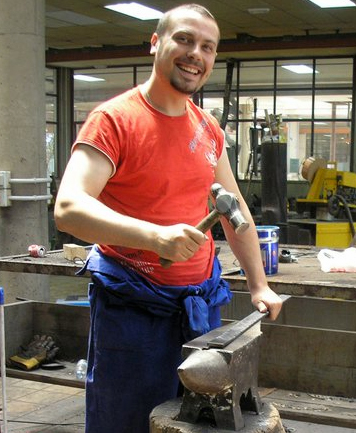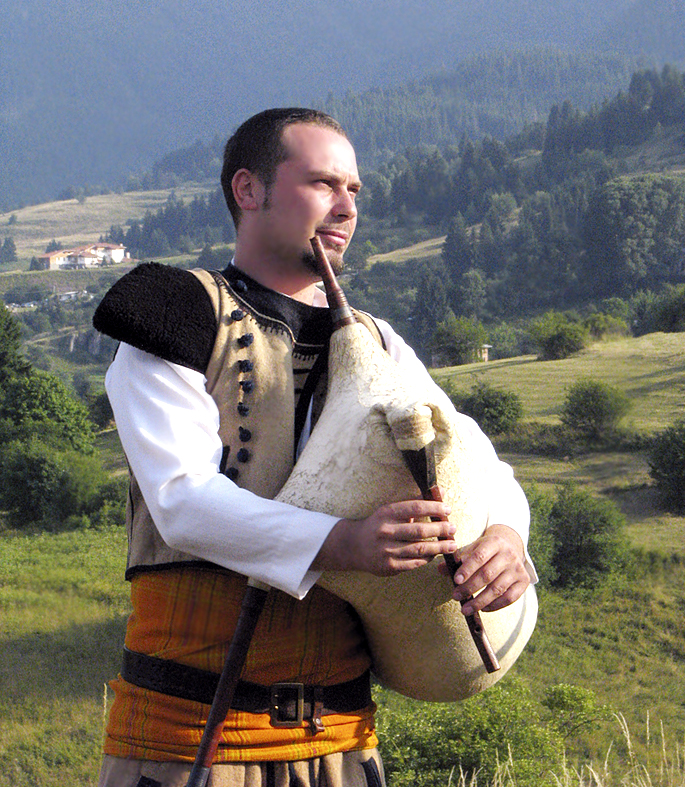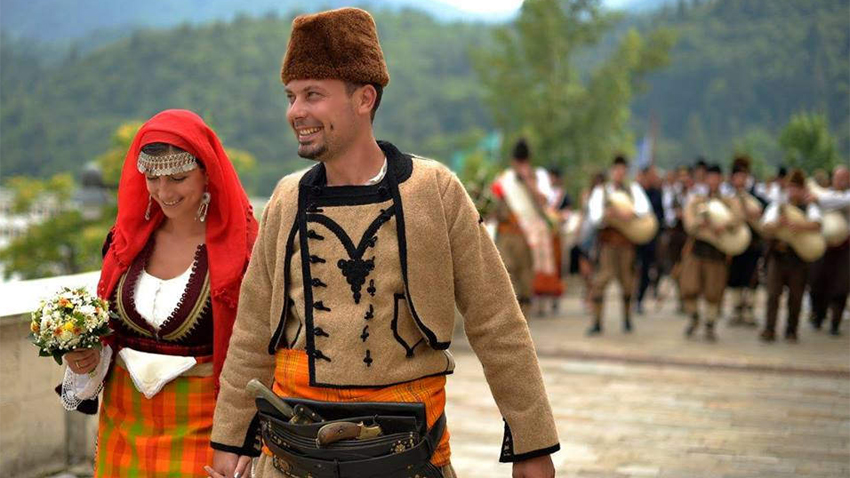Once the day of St. Athanasius comes around, winter’s over! – Bulgarians of old would say, when they celebrated the day of St. Athanasius the Great on 31 January, old style. In our day it falls on 18 January.
In our climes, the first month of the year is freezing, with lots of snow and low temperatures. Still, if we hark to the voice of nature, we shall see the first snow drops peeping out of the snow, or hear a bird calling out in the trees and the day grows longer. So, it is true what they say: the day of St. Athanasius comes to banish winter.
Before the day of St. Athanasius, Orthodox Christians mark the day of St. Anthony the Great (17 January). In Bulgarian legends, Andon and Atanas are brothers, both blacksmiths, that is why the two days are also an occasion to celebrate the work of smiths, cutlers and farriers.
By way of celebrating this day, we talk to a latter-day master of wrought-iron smithery, who is also named after the patron saint of his trade.
Atanas Peev is 34, from the town of Smolyan. He graduated “metal” at the local school of art. For as long as he can remember, he has worked with wrought iron.
“Little by little, I took up blacksmithery as a profession,” he says and adds:
 “It takes a lot of hard work to be good at this trade. It is a difficult one, it is not easy to wield a hammer, so you have to love the material you are working with, you have to love what you do. And most importantly – you must have a place for it in your heart, because success does not come easily, and crafts are a dying art. Many years ago the blacksmith had a job to do that was very much sought after in towns and villages. That was so because everything in the home was connected with iron – it was used to make tools, instruments for plowing the land etc. In our day, there is no way I can shut myself up in my workshop and work only as a blacksmith. My day is really diverse – I am also a sculptor, and in my leisure time I play the kaba (low-pitched) bagpipe. One day I may be at the shop, the next day – playing the bagpipe at some event. It makes my life interesting and is a great inspiration. No wrought iron commission is ever the same as the next. Every
“It takes a lot of hard work to be good at this trade. It is a difficult one, it is not easy to wield a hammer, so you have to love the material you are working with, you have to love what you do. And most importantly – you must have a place for it in your heart, because success does not come easily, and crafts are a dying art. Many years ago the blacksmith had a job to do that was very much sought after in towns and villages. That was so because everything in the home was connected with iron – it was used to make tools, instruments for plowing the land etc. In our day, there is no way I can shut myself up in my workshop and work only as a blacksmith. My day is really diverse – I am also a sculptor, and in my leisure time I play the kaba (low-pitched) bagpipe. One day I may be at the shop, the next day – playing the bagpipe at some event. It makes my life interesting and is a great inspiration. No wrought iron commission is ever the same as the next. Every 
Atanas Peev is the holder of the prestigious Guardian of Tradition award for 2013. The master blacksmith earned the unanimous appreciation of the jury and the public among all young competitors in the “Crafts” category. At the award ceremony, Atanas Peev surprised the audience with a performance on his kaba bagpipe.
“The appreciation of my work, the praise give me the strength and the ambition to go on with my work,” Atanas goes on to say. “On my name day, I am always with friends, we get together, we play the bagpipe, we sing and we have a good time – it is a tradition of ours. I am happy to say I have many true friends, and we help each other out always. We, who live in the Rhodopes are hospitable, welcoming people. Our door is always open. That is how it has been always, because life up in the mountain is tougher and that unites people. People here grow up to the sound of the bagpipe. Happily, there are more children being born in these parts now and their interest in the bagpipe has been growing. We all carry its voice in our hearts, so all it takes is to give this interest free reign.”

English version: Milena Daynova
Photos: BGNES, pazitelnatradiciite.com, radiovelikotarnovo.comThe Bulgarian Sunday School "Asen and Ilia Peykovi" in Rome is inviting participants to an online seminar themed "Biserche Valshebno". The event, taking place on March 22 and 23, is a continuation of the discussions that emerged during the Second..
"It all started on a March evening in 2007 when 2 million people and 2,000 companies in Sydney (Australia) turned off their lights for one hour – from 8:30 PM to 9:30 PM – to show that they care about nature and the climate. Back then, no one could..
Concert in North Macedonia turns into tragedy A nightclub fire tragedy left North Macedonia in grief. A concert by the popular hip-hop group DNA, which was supposed to become a celebration in the small town of Kočani, turned into a true..
For the 32nd time, the Children's Easter Festival will bring together Bulgarian children from different countries in Bosilegrad, Serbia, giving them a..
In 1992, a child from Georgia packed her entire life into a small black canvas bag to escape the horror of the bombs… The war through..

+359 2 9336 661
